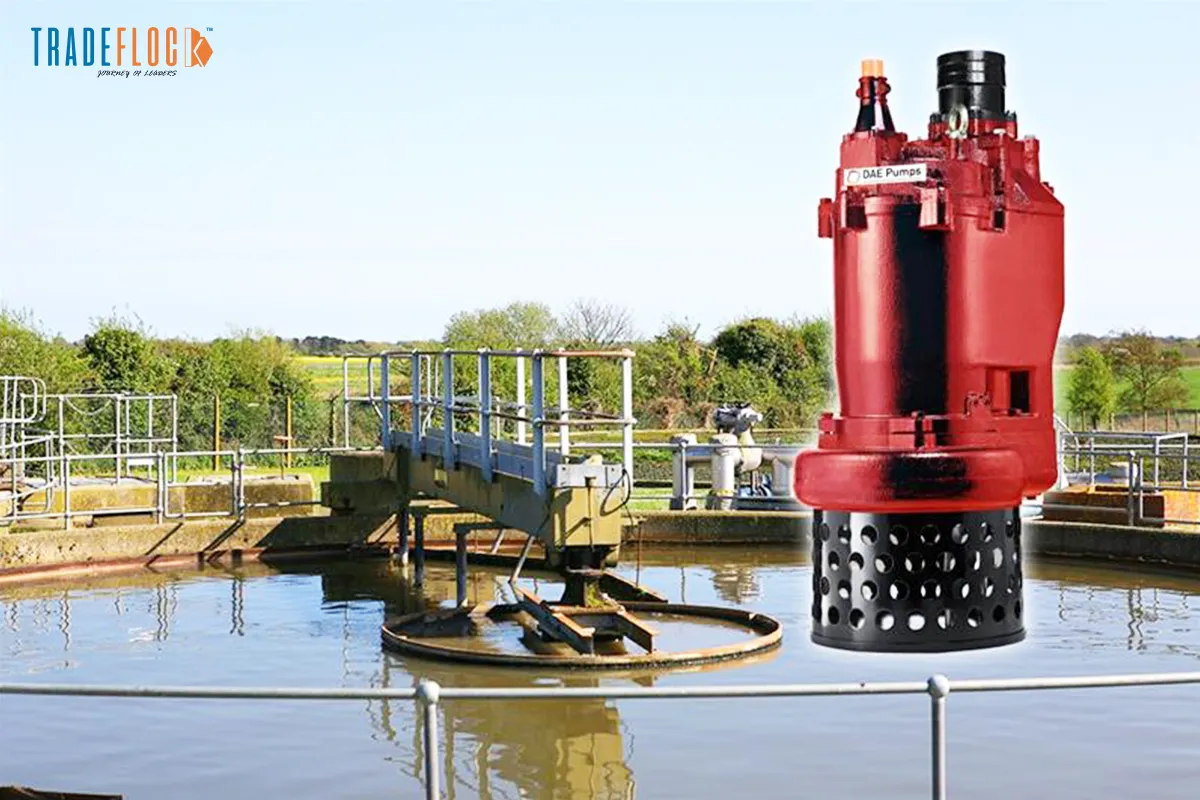In modern industrial operations, efficiency and reliability are crucial. Industries are increasingly dealing with challenging materials like abrasive slurries and corrosive liquids, which drives the need for strong and adaptable pumping solutions. Submersible slurry pumps are particularly notable for their strength and versatility in meeting these demands.
Submersible slurry pumps are not just auxiliary tools; they are integral to the success of numerous operations across various sectors, including mining, construction, wastewater treatment, and energy production. Their ability to handle solid-laden fluids with high efficiency and low maintenance requirements makes them a cornerstone of modern industrial pumping systems.
This article explores the necessary role submersible slurry pumps play in powering today’s industries, highlighting their key features, applications, and benefits in comparison to other pumping solutions.
Table of Contents
Understanding Submersible Slurry Pumps
Submersible slurry pumps are a type of pump designed to operate while fully submerged in liquid, specifically in mixtures of liquids and solids known as slurry. Unlike surface-mounted pumps, these units are installed directly into the sump or pit, allowing for direct contact with the fluid being handled.
Key Components and Functionality
These pumps typically consist of a motor and an impeller enclosed in a sealed housing that protects against the harsh environments in which they operate. Their design ensures that the electrical components remain dry and safe even under extreme conditions. The impeller creates centrifugal force to transport the slurry from the submerged location to the desired discharge point.
Comparison with Other Industrial Slurry Pumps
While vertical and horizontal slurry pumps are commonly used in industrial applications, submersible slurry pumps offer distinct advantages in terms of space utilization, operational simplicity, and reduced noise levels. By eliminating the need for priming and suction lines, submersible pump solutions provide a more streamlined setup.
Core Industries Relying on Submersible Pumps
Mining and Mineral Processing
In mining operations, handling abrasive materials like coal, ore, and tailings is a daily challenge. Submersible slurry pumps are used for transporting these materials through pipelines, dewatering mining pits, and maintaining processing efficiency.
Wastewater and Sewage Treatment
Municipal and industrial wastewater facilities rely on submersible pumps for industry that can manage high volumes of sludge and slurry. Their ability to operate while submerged makes them ideal for confined and submerged environments such as sewage tanks and clarifiers.
Oil & Gas Sector
The extraction and refining processes in the oil and gas industry produce a range of slurry materials, including drilling muds and waste slurries. Heavy-duty slurry pumps are crucial for efficiently and safely managing these by-products.
Construction and Tunneling Projects
In construction, particularly in tunneling and excavation, groundwater and slurry must be continuously removed to maintain safety and progress. Submersible slurry pumps provide powerful dewatering solutions in these rugged environments.
Why Submersible Pumps for Industry Are the Preferred Choice
The popularity of submersible slurry pumps is not accidental. Their engineering solutions offer multiple benefits, making them the ideal choice for demanding industrial operations.
Efficiency and Space-Saving Design
These pumps are ideal for installations with limited space, as they are compact and don’t require extensive infrastructure. Because they function underwater, they don’t require a lot of space above ground, which improves the use of available space in industrial settings.
Lower Maintenance and Energy Consumption
These pumps don’t require an additional suction pipe, as they are primed by nature due to their submerged position. As a result, parts experience less wear and tear, which lowers the need for regular maintenance. To reduce operating expenses, many contemporary submersible pumps are also designed with energy efficiency in mind.
Safety Advantages in Hazardous Environments
Safety is a top priority in industries that handle flammable, toxic, or otherwise hazardous materials. Submersible pumps minimize the possibility of leakage and environmental pollution by sealing and submerging the whole pumping system.
Heavy-Duty Slurry Pumps: Handling the Toughest Materials
Heavy-duty slurry pumps are specifically designed for handling aggressive slurries with high solid content. These pumps are designed to withstand the rigors of abrasive and corrosive environments commonly found in industrial settings.
Types of Slurry Handled
- Abrasive slurry: Includes sand, gravel, and other hard particles
- Corrosive slurry: Includes chemicals or acids that can degrade common materials
- Viscous slurry: Thick slurries that require high torque to move
Features of Heavy-Duty Models
- Reinforced impellers and volutes
- High-chrome or rubber-lined interiors
- Large solid-passing capacity
- Optional agitators for stirring settled materials
Materials of Construction
Most heavy-duty pumps are made of hardened alloys, high-chrome iron, or corrosion-resistant materials, such as stainless steel. To guarantee durability and lifespan, the material used must be suitable for the slurry application.
Key Slurry Pump Applications
Submersible slurry pumps are incredibly flexible and are used in a wide range of applications. Below are some of the most common industrial uses:
- Dewatering in Mining: Removal of water mixed with heavy solids from mining pits and shafts.
- Dredging in Civil Engineering Projects: Clearing sediment from ports, rivers, and construction sites.
- Ash Handling in Power Plants: Transporting ash slurry from combustion chambers to disposal systems.
- Industrial Wastewater Management: Pumping sludge, silt, and contaminated water in manufacturing facilities.
Each of these slurry pump applications demands unique flow rates, head pressures, and material resistance; thus, proper selection and setup are crucial.
Choosing the Right Submersible Pump Solutions
Selecting the most suitable pump for your industrial needs involves several considerations beyond basic performance metrics.
Capacity, Head, and Flow Considerations
Understanding the volume of slurry to be moved, the height it must be lifted (head), and the required flow rate is essential. Oversizing or undersizing a pump can lead to operational inefficiencies or premature failure.
Custom Configurations for Unique Needs
Many manufacturers offer customizable solutions tailored to niche applications. Features such as agitators, wear plates, or variable frequency drives (VFDs) can be included to enhance performance.
Integration into Industrial Pumping Systems
Submersible slurry pumps must work seamlessly within broader industrial pumping systems. This includes compatibility with piping networks, automation systems, and control panels.
Innovations in Industrial Pumping Systems
With the rise of Industry 4.0, even slurry pumps are benefiting from advancements in technology and design.
Smart Monitoring Technologies
Sensors and IoT integration allow for real-time monitoring of flow rates, motor temperature, and vibration levels. This predictive maintenance capability helps avoid costly downtimes.
Remote Operations and Automation
Modern industrial pumping systems can be remotely operated and monitored, reducing the need for on-site personnel and increasing system efficiency.
Environmental Impact and Sustainability Trends
Submersible pump solutions are more environmentally friendly due to their energy-efficient motors, superior materials, and advanced sealing technologies. Many newer versions additionally allow for compliance with environmental standards and certifications.
Conclusion
Submersible slurry pumps have become essential tools across various industrial sectors, offering robust performance in some of the harshest operational environments. Their ability to handle highly abrasive and corrosive slurries, combined with space-saving and low-maintenance designs, makes them a top choice for modern industrial pumping systems.
Submersible slurry pumps are set to play an increasingly important role as industries expand and seek more efficient, sustainable, and reliable technology. Investing in the appropriate slurry handling equipment now assures operational continuity, safety, and cost-effectiveness for future difficulties.






